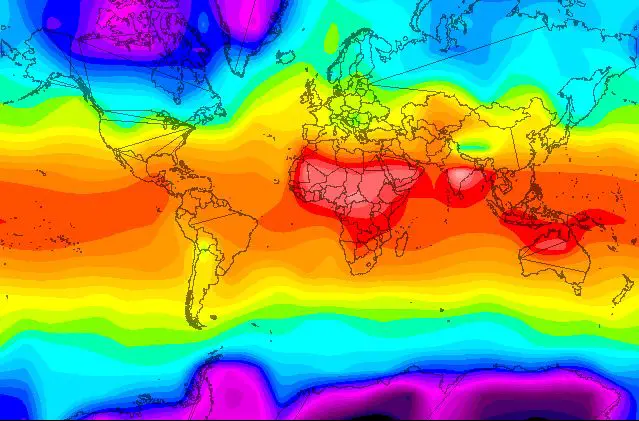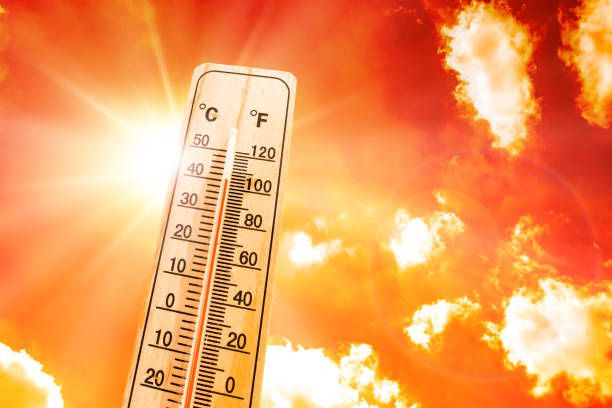Breaking Historical Record
Last summer’s intense heat didn’t just break local or national records; it shattered a millennial threshold. According to scientists, the Northern Hemisphere experienced its hottest summer in two millennia. This revelation, described as “alarming” by researchers, underscores a significant escalation in our climate crisis.
A Deeper Look into the Past
The evidence, detailed in a recent study published in the journal Nature, extends beyond modern temperature records. By using both observed data and temperature reconstructions, scientists have been able to look back over centuries. Their findings? The summer of 2023 stands alone, unparalleled in the historical record.
The Hottest Summer on Record
Copernicus, the climate change observation arm of the European Union, initially highlighted last summer as the hottest on record. However, this new study dives deeper, indicating that the average temperature exceeded previous records by more than 0.5 degrees Celsius.

Historical Context and Implications
Dr. Ulf Büntgen from the University of Cambridge, a co-author of the study, emphasized the uniqueness of last year’s heat. “When you view it against the long sweep of history, the recent global warming trend is starkly dramatic,” he said. Büntgen also warned that this trend is likely to continue unless there is a significant and rapid reduction in greenhouse gas emissions.
A Stark Comparison
The research compared the temperatures from June to August 2023 with those from the year 536 CE, a time marked by major volcanic eruptions that led to the coldest decade in a thousand years. The striking difference in temperature between that coldest summer and the recent hottest reached 3.93 degrees Celsius.

The Role of Human Activity
This comparison is particularly poignant in the context of climate change debates where some argue that the climate has always been subject to change. While this is true, as demonstrated by the natural cooling event in 536 CE, the study’s lead author, Dr. Jan Esper of Johannes Gutenberg University Mainz in Germany, notes that it’s the relentless increase in greenhouse gases from human activities that exacerbates these changes. The burning of fossil fuels, for example, releases gases that trap more of the sun’s heat in our atmosphere, a situation compounded by natural phenomena like El Niño.
The Consequences of Inaction
The consequences are severe: “We end up with longer and more severe heat waves and extended periods of drought,” explained Esper. This pattern underscores the critical urgency for reducing greenhouse gas emissions immediately.
Surpassing Critical Thresholds
The implications of rising temperatures are vast and distressing. Exceeding global warming of 1.5 degrees Celsius relative to pre-industrial levels—a threshold set by the 2015 Paris Agreement—promises more frequent and intense droughts, hurricanes, and floods. Such climatic shifts are anticipated to drive global migrations, intensify food scarcity, and trigger a slew of other socio-economic issues.

Data Inconsistencies and Revised Analyses
Yet, the observational data suggests a grim reality: last summer, temperatures in the Northern Hemisphere were already 2.07 degrees Celsius above the average of the late 19th century. This not only surpassed the Paris Agreement’s targets but also highlighted inconsistencies and uncertainties in baseline temperature calculations used for monitoring global warming. These discrepancies often arise from inadequate historical temperature records and poorly situated thermometers.
A Call for Immediate Action
With revised analyses accounting for these inaccuracies, researchers found that the temperature difference between pre-industrial times and last summer was even greater than initially thought, at 2.20 degrees Celsius. Despite the lack of comprehensive data for the Southern Hemisphere and its distinct climate response due to its vast oceanic coverage, the study’s conclusions are clear. The modern-day warmth is unprecedented on a large scale, reinforcing the urgent call for global efforts toward net-zero emissions.
Facing the Heat Ahead
As the planet braces for another potentially record-breaking summer, with meteorologists predicting above-normal temperatures across most of the U.S., the findings from this study serve as a stark reminder. The continued rise in heat records, with their deadly implications, is not an anomaly but a clarion call for immediate and decisive climate action.



